New Faculty 2022-2023
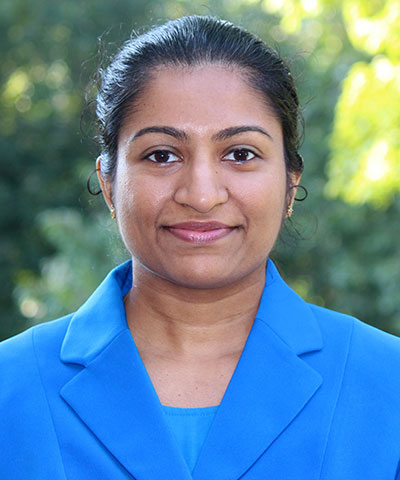
Anushika Athauda
Assistant Professor of Instruction, Department of Mechanical Engineering
Anushika Athauda joins the faculty as an assistant professor of instruction after having served most recently as an assistant professor of physics and astronomy at Virginia Military Institute (VMI). Prior to that, she was a visiting assistant professor of physics and engineering at Washington and Lee University.
An experimentalist in condensed matter physics, Athauda is focused on designing, synthesizing, characterizing, and investigating the structure of novel materials, particularly those with the potential for superconducting properties. She uses single crystal and powder, neutron, and x-ray diffraction measurements to investigate the crystal structure and local lattice distortions that contribute to the mechanism of superconductivity. She is the lead author of five papers on this topic in material science journals.
Athauda has taught introductory to advanced physics courses that are included in the core curriculum as well as in the major programs of VMI and Washington and Lee University. This fall, she will teach Engineering Mechanics II: Dynamics and coteach Engineering Computation and a new lab course, Fundamentals of Instrumentation and Measurements.
- Undergraduate degree: BS, engineering physics, University of Colombo, Sri Lanka
- Graduate degree: PhD, experimental condensed matter physics, University of Virginia
- Most recent appointment: Assistant professor, Virginia Military Institute
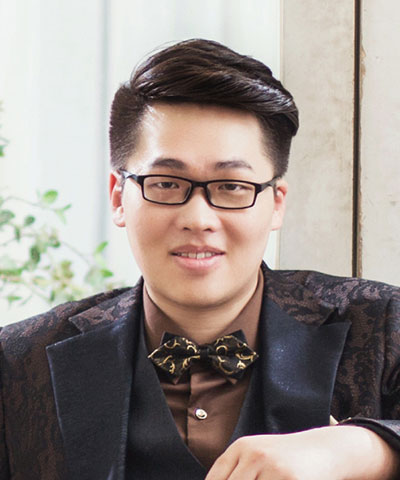
Tong (Tony) Geng
Assistant Professor, Department of Electrical and Computer Engineering
Tong (Tony) Geng joins the faculty as an assistant professor after having served as a postdoctoral research associate at the US Department of Energy’s Pacific Northwest National Laboratory (PNNL).
His research interests are at the intersection of computer architecture and systems, machine learning, graph intelligence, and high-performance computing. His doctoral training in computer engineering concentrated on high-performance neural network acceleration. As a postdoctoral research associate, he studied a next-generation heterogeneous computer system for high-performance computing and machine learning.
At Rochester, Geng’s Intelligent Architecture (IntelliArch) research group will pursue new computer systems and architecture for emerging artificial intelligence methods through algorithm-architecture codesign. This work has potential applications for drug discovery, social media, smart traffic, and recommendation systems.
Geng was a finalist for Boston University’s Best Thesis Award in 2021 and received PNNL’s Outstanding Postdoc Award the same year. His 45 papers have appeared in prestigious conferences and journals, including IEEE/ACM International Symposium on Microarchitecture (MICRO), IEEE’s International Symposium on High-Performance Computer Architecture (HPCA), the Design Automation Conference (DAC), the International Conference for High Performance Computing, Networking, Storage, and Analysis (SC), and the ACM International Conference on Supercomputing (ICS).
In addition to his research, Geng will teach undergraduate and graduate courses in computer architecture.
- Undergraduate degree: BE, electronic engineering and information technology, Zhejiang University
- Graduate degrees: MS, electronic systems, Eindhoven University of Technology; PhD, computer engineering, Boston University
- Most recent appointment: Postdoctoral research associate, Pacific Northwest National Laboratory
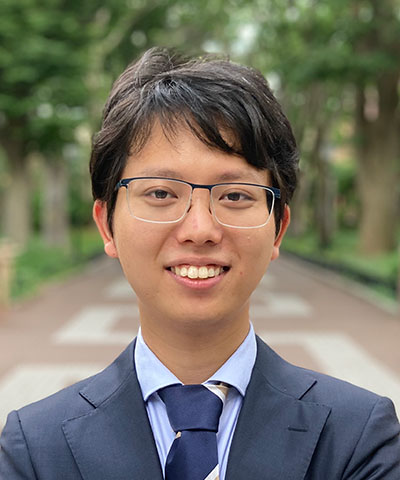
Hangfeng He
Assistant Professor, Department of Computer Science, Goergen Institute for Data Science
Hangfeng He joins the faculty after having completed a PhD in computer and information science at the University of Pennsylvania.
He’s research aims to create intelligent agents to assist humans, so that people and computers can communicate better. By designing suitable formulations for tasks that require complex reasoning as well as analyzing the structure of data in different media formats, He hopes to produce simple, efficient models for real-world applications. In a paper in Proceedings of the National Academy of Sciences, He and his colleagues proposed the Layer-Peeled Model, a simple yet effective modeling strategy for understanding the deep neural networks used to develop virtual assistants, autonomous vehicles, product recommendations, and other applications.
At Rochester, He will use machine learning and natural language processing to further understand and analyze the structure of real-world data while simplifying modeling without the need for large-scale data.
He is author or coauthor of 15 journal and conference papers. In addition to his research, He will teach a graduate course this fall on artificial intelligence, introducing fundamental principles and key applications of AI, including heuristic search, automated reasoning, probability, and machine learning.
- Undergraduate degree: BS, computer science, Peking University
- Graduate degree: PhD, computer and information science, University of Pennsylvania
- Most recent appointment: Doctoral student, University of Pennsylvania
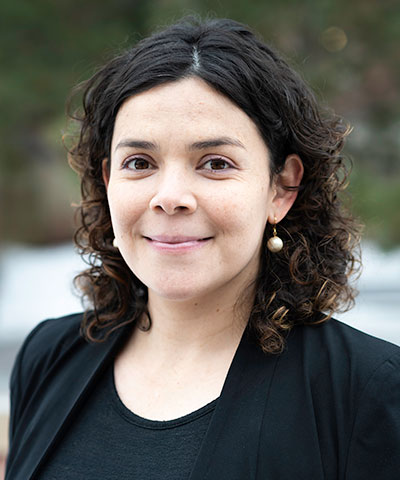
Marisol Herrera Perez
Assistant Professor, Department of Biomedical Engineering
Marisol Herrera Perez joins the faculty after having served as a postdoctoral research scientist in the Department of Mechanical Engineering at Columbia University.
Herrera Perez specializes in generating tissue models and genetic tools to understand how cells communicate and organize to create multicellular structures. At Columbia, for example, she investigated how mechanical forces generated by cells influence the ability of tissues to change shape and deform during embryo development. Her research, which combines genetic engineering, confocal microscopy, and cell mechanics, aims to understand what goes wrong during certain disease processes and to enable scientists to generate tissues that more closely resemble human tissues for medical applications.
Herrera Perez received the Burroughs Wellcome Fund’s Career Award at the Scientific Interface in 2021. Her work has been published in such peer-reviewed journals as Tissue Engineering and Biophysical Journal.
Herrera Perez will teach an upper-level cell and tissue engineering course in spring 2023 as well as core-curriculum courses.
- Undergraduate degree: BSc, chemical engineering, Universidad Nacional de Colombia–Bogotá
- Graduate degrees: MSc, chemical engineering, Universidad Nacional de Colombia–Bogotá; PhD, agricultural and biological engineering, Purdue University
- Most recent appointment: Postdoctoral research scientist, Columbia University
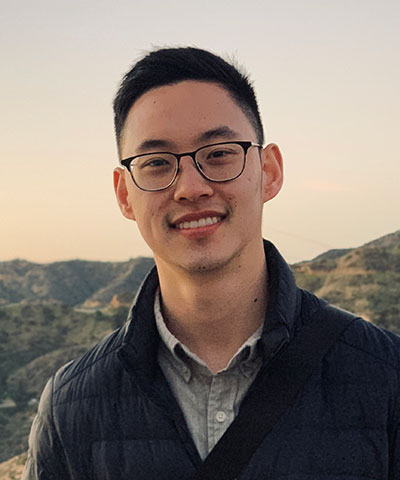
Anson Kahng
Assistant Professor, Department of Computer Science, Goergen Institute for Data Science
Anson Kahng joins the faculty after having served as a postdoctoral fellow at the University of Toronto.
Kahng’s research examines theoretical problems in computational social choice, specifically the aggregation of individual preferences to make collective political or economic decisions. He combines theoretical and empirical tools to solve real-world problems, incorporating ideas from theoretical computer science, artificial intelligence, and human-computer interaction.
For his PhD thesis, for example, Kahng examined how modern implementations of democracy must adapt to the changing technological landscape. He posed two questions: What can computer science do for democracy? What can democracy do for computer science? Kahng’s recent projects include studies of liquid democracy, virtual democracy, and participatory budgeting—all forms of collective decision-making that leverage tools from computer science to achieve fairness, representation, and efficiency.
He is the author or coauthor of 16 conference and journal papers, which have appeared in the Journal of Artificial Intelligence Research or at the ACM Conference on Economics and Computation, International Conference on Machine Learning, AAAI Conference on Artificial Intelligence, Conference on Neural Information Processing Systems, and International Joint Conference on Artificial Intelligence, among others.
- Undergraduate degree: BA, computer science, Harvard University
- Graduate degree: PhD, computer science, Carnegie Mellon University
- Most recent appointment: Postdoctoral fellow, University of Toronto
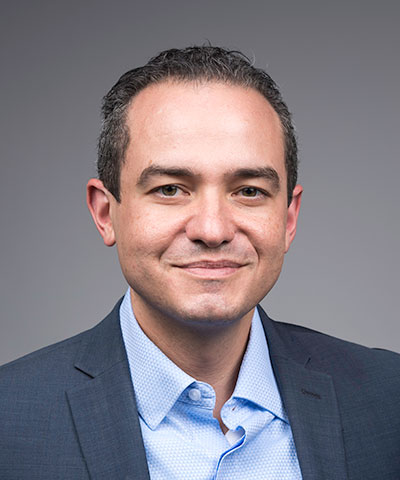
Christopher Kanan
Associate Professor, Department of Computer Science
Christopher Kanan joins the faculty after having served as an associate professor in the Carlson Center for Imaging Science at the Rochester Institute of Technology (RIT).
Kanan is an expert on artificial intelligence (AI) whose research aims to develop machine learning that can mimic the human brain in its ability to continually acquire, fine-tune, and transfer knowledge and skills. His work spans subfields including deep learning, bias mitigation and measurement, and computer vision.
In 2021, Kenan received an NSF CAREER award to leverage what neuroscientists know about how information is stored and organized in the human brain during sleep, to create computationally efficient algorithms that learn continually. The award followed his publication of a highly cited article on the topic in the journal Neural Networks in 2019.
While at RIT, Kanan led AI research and development at the medical AI startup Paige.AI, Inc., including the team that developed the world’s first FDA-approved AI system for helping pathologists detect cancer.
He is author or coauthor of 69 refereed journal, conference, and workshop publications and has 17 patents to his name.
- Undergraduate degree: BS, philosophy and computer science, Oklahoma State University
- Graduate degrees: MS, computer science, University of Southern California; PhD, computer science, University of California–San Diego
- Most recent appointment: Associate professor, Rochester Institute of Technology
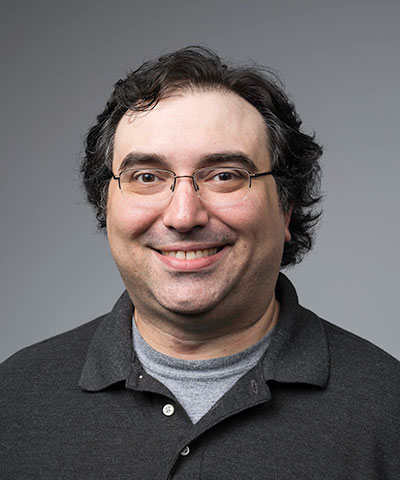
Joseph Loporcaro
Assistant Professor of Instruction, Department of Computer Science, Undergraduate Program in Digital Media Studies
Joseph Loporcaro begins an appointment as an assistant professor of instruction after having served as a lecturer since 2018 and previously as an adjunct professor at Rochester. He has also served as an adjunct professor at Georgetown University, Rochester Institute of Technology, St. John Fisher College, Cayuga Community College, and Hilbert College.
For his doctoral dissertation at the University of Buffalo, Loporcaro analyzed the term “hardcore” as it relates to video game culture while defining it in a way that is useful for gamers, game journalists, and game developers. Video game studies continues to be a focus of many of the computer science and digital media studies classes he teaches.
In his Video Games as Interactive Storytelling class this fall, students will learn how a rich story can be the difference between a forgotten game and a timeless classic before constructing their own interactive stories. In Video Game Design, meanwhile, they will learn important game design elements such as interactivity, challenge, games as systems (cybernetic, emergent, conflict), genre, and setting—and then design and develop their own games. He will also teach Social Implications of Computing, introducing students to the pros and cons of how computers and the internet have transformed society.
Loporcaro has taught a digital media studies class on the overall design process regarding digital products and devices. Beyond the classroom, he is faculty advisor for the undergraduate student organizations eSports Club and Video Game Dev Club.
- Undergraduate degree: BA, communications/journalism, St. John Fisher College
- Graduate degrees: MA, television, radio, and film, Syracuse University; PhD, communication, University at Buffalo
- Most recent appointment: Lecturer, University of Rochester
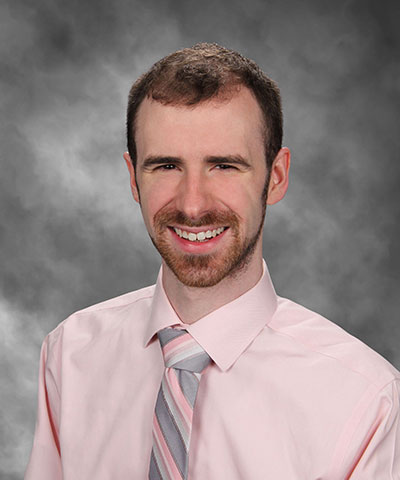
Andrew Read-McFarland
Assistant Professor of Instruction, Department of Computer Science
Andrew Read-McFarland joins the faculty after having completed a PhD in the Department of Computer Science.
Read-McFarland’s research is in theoretical computer science, with algorithms as a subfield. Specifically, he looks at problems—computational tasks with input “x do y”—and categorizes them as either “easy” (meaning an efficient algorithm) or “hard” (meaning no efficient algorithm exists or is possible). This includes problems of decision and of sampling with applications in areas such as motif counting, polymer models, parallel scheduling, and fair redistricting.
In 2019, he received the University’s Edward Curtis Peck Award for Excellence in Teaching by a Graduate Student. This fall, Read-McFarland will teach Introduction to Programming, which he designed. The course, one of the department’s largest, is for nonmajors or students with less extensive backgrounds in math and science. He will also teach Introduction to Web Development, which introduces students to HTML5, CSS3, webpage design and construction techniques, mobile design issues, and search engine optimization.
In addition to teaching, Read-McFarland has served as a graduate admissions committee member, reviewing student applications, inviting selected applicants to campus, and interviewing them.
- Undergraduate degrees: BS, computer science and math, Denison University
- Graduate degrees: PhD, computer science, University of Rochester
- Most recent appointment: Doctoral student, University of Rochester
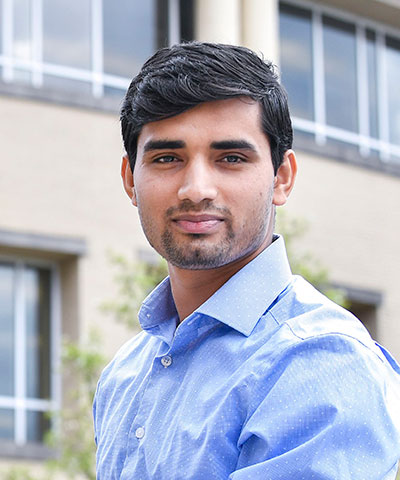
Sobhit Singh
Assistant Professor, Department of Mechanical Engineering
Sobhit Singh joins the faculty after having served as a postdoctoral research associate at Rutgers University.
Singh uses the laws of quantum mechanics and advanced high-performance supercomputers to better understand the movements of electrons and atoms in solid-state crystals and other materials. His goal is to discover and design quantum materials with interesting properties for applications in data storage, quantum computing, energy harvesting and energy storage, and sensors. He is particularly interested in polar metals, novel ferroelectrics, topological quantum materials, magnets, superconductors, and two-dimensional materials.
Singh has published more than 40 research papers in journals including Physical Review Letters, Nature Materials, Nature Communications, and Nano Letters. His research has also been featured in popular research blogs and media, such as Newswise (from the US Department of Energy) and EurekAlert! (run by the American Association for the Advancement of Science). His awards include a Distinguished Doctoral Scholarship from the West Virginia University Foundation and Seehra Research Award.
Singh will teach undergraduate and graduate courses and mentor undergraduate and PhD students at Rochester.
- Undergraduate degree: BSc, physics, mathematics, and computer applications, University of Lucknow, India
- Graduate degrees: MSc, physics, Indian Institute of Technology Guwahati; PhD, physics and astronomy, West Virginia University
- Most recent appointment: Postdoctoral research associate, Rutgers University

Eustrat Zhupa
Assistant Professor of Instruction, Department of Computer Science
Eustrat Zhupa begins an appointment as an assistant professor of instruction in the Department of Computer Science after having served as a lecturer in the department since 2018.
Over the past four years at Rochester, he has taught six different classes ranging from web programming to the design and analysis of algorithms. This fall Zhupa will teach Introduction to Cryptography as well as a course on fundamental concepts of database design and use.
Zhupa previously served as an assistant professor of computer science at the University of Information Science and Technology in Ohrid (North Macedonia) and at the University of Vlora (Albania), where he also served as dean of the College of Technical Sciences for two years. He was also a visiting teaching faculty member at Rochester Institute of Technology.
Zhupa’s research interests include theory of computation, cryptography and information security, graph theory, Linux-based file systems, cloud computing, and big data. He has authored three books and 14 journal and conference papers.
- Undergraduate degree: BSc, computer science, University of Bari
- Graduate degree: PhD, computer science, University of Bari
- Most recent appointment: Lecturer, University of Rochester
